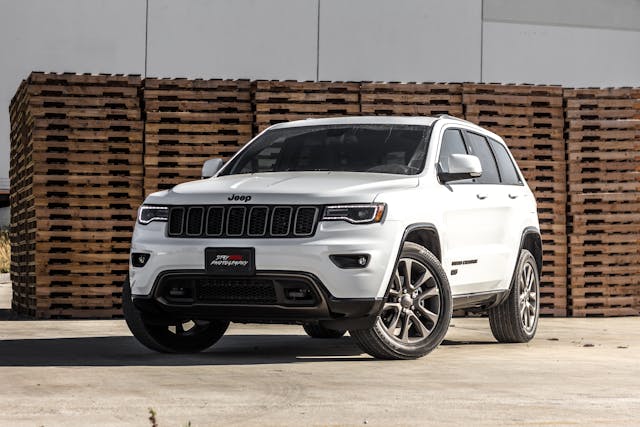Finding a car that suits all your needs and your budget is crucial when buying it. Choosing the perfect one is an individual process, as it all depends on a person’s lifestyle and needs. So, with this comprehensive guide, we will try our best to help you find the perfect car, whether it is your first, a family vehicle, or a fashionable ride for any stage of life.

Assess your needs
You must evaluate your needs before entering the realm of car buying. Think about your routine, how far you have to go each day, the number of people in your family, and any special needs. Do you want a sporty ride, a roomy SUV for a road trip with the kids, or a little car for commuting around the town? Identifying these needs is essential before deciding which one to buy.
Set a budget
How much you are willing to spend is an important thing to think about. Think about how much you can afford to pay initially, as well as recurring costs, like insurance, gas, and any possible repairs. If you want to find a perfect vehicle, you need to balance your personal preferences and practical considerations. Think about what you need the car for and how you live your life. For example, a smaller option might be perfect for city people, while a roomy SUV or sedan can be better for a family. Look at various models and find the best car dealership, as they can offer various options to choose from. Pay close attention to things like safety features, fuel economy, and dependability. Finally, make sure the price is well worth the comfort that your new car provides, and you’ll be able to budget your needs efficiently and smoothly.
Take a test drive
One of the most important things to do is to take a test drive so you can feel how a car handles in real-world conditions. This way, you get the chance to evaluate its responsiveness, speed, stopping power, and ride quality. These realistic driving situations can also help you evaluate other car features, such as safety and comfort. If there are any problems with the vehicle that you cannot spot easily during the in-person check, a test drive is the best way to find everything out. Feeling and handling the car on the road can help you determine whether it is a good fit. You may limit your options by test driving a number of vehicles and then comparing them.
Family-friendly
When the little ones outgrow their infant car seats, it is time to start shopping for a roomier and more comfortable vehicle for all those road trips you want to take. You may want extra cargo room and maybe a little more power from the engine. The most straightforward option for the additional cargo is to switch to sedans or station wagons, as they combine the best of hatchbacks with the ease and convenience of SUVs. If you have a deeper wallet, look into SUVs, as they can be ideal all-around cars if you need a vehicle that can accommodate a large family while being a nice vehicle for your important errands and job-related drives.
Technology tools
Over the last several years, the car industry has made great strides in incorporating creative technical solutions. From navigation and communication systems to parking aids and other intelligent features, manufacturers outfit their models with a variety of unique solutions. Decide which options are must-haves for your ideal car by considering your priorities.
Fuel efficiency
Nowadays, you have to think more about how your car affects the environment. There has been a recent uptick in the promotion of electric and hybrid cars as environmentally friendly transportation alternatives. Weigh your alternatives, including fuel-efficient models, electric automobiles, and hybrids, to determine your impact on the environment. Additionally, some cities provide discounts or even free parking to eco-friendly car owners.

Urban vs. rural
The best vehicle for your requirements might vary greatly depending on whether you’re in an urban or rural area. Smaller cars or electric vehicles could be better options in densely populated cities due to parking constraints and traffic congestion. Because of the possible difficult road conditions in rural locations, SUVs or cars with off-road capability can be a better choice.
Resale value
Although it may not be your primary concern when buying a car, the resale value is a crucial factor to think about when budgeting for the future. There are many factors that influence a car’s resale value, including the model, popularity, and the car’s general reliability. Some cars retain their worth better than others. By doing your research, you can easily choose a car that has a history of keeping its value over time. This can help you get the most value for your money if you ever decide to sell your car.
Financing options
Keeping the future in mind is essential when buying a car. For that reason, think about warranties and financing options. Car financing might be a smart choice if you don’t have the cash on hand. So, you should explore several funding solutions to avoid spending more money than necessary in the end. Get in touch with many car dealerships to compare their offers. Furthermore, you should always ask about the car’s warranty. If your car has an accident, this will protect you from the many costs associated with it. So, ask them about the deductible and the coverage they provide. You can have the car of your dreams without going into debt if you pay attention to these points.
You should keep in mind all of these things while you search for a new car that is both affordable and suitable for your needs. Get as much information as possible, talk to people you trust, look at financing options, test drive many cars, and think about warranties and financing. Also, remember to think about your lifestyle and what you need every day. You can discover the ideal car for your needs and budget by following these steps.












